
Rosario Umberto Balsamo, best known as Umberto Balsamo is an Italian singer-songwriter and composer.

Dario Baldan Bembo is an Italian composer, singer-songwriter, music arranger and musician, best known for the songs "Aria" and "Amico è".

"Adesso sì" is a 1966 Italian song composed by Sergio Endrigo. The song premiered at the 16th edition of the Sanremo Music Festival, with a double performance by Endrigo and Chad & Jeremy, and placed at No. 8 in the competition.

"Adesso tu" is a 1986 Italian song composed by Eros Ramazzotti, Piero Cassano and Adelio Cogliati and performed by Eros Ramazzotti. The song won the 36th edition of the Sanremo Music Festival.
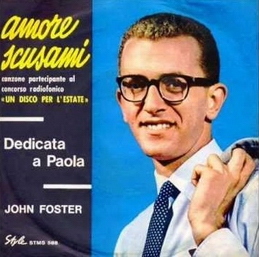
"Amore scusami" is a 1964 song composed by Gino Mescoli and Vito Pallavicini. The song premiered at the Un disco per l'estate music festival with a performance of John Foster, and then got an immediate commercial success, peaking at third place on the Italian hit parade and remaining in the top ten for five months.

"Applausi" is a 1968 song composed by Claudio Cavallaro and Luciano Beretta and performed by the musical group I Camaleonti. One of the band's major hits, the song consists of the alternating between soul-style vocal cues and choral moments.
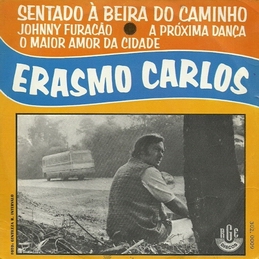
"Sentado à Beira do Caminho" is a Brazilian song composed by Roberto Carlos and Erasmo Carlos and released as a single in May 1969 by Erasmo Carlos.
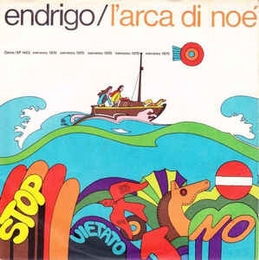
"L'arca di Noè" is a 1970 song composed by Sergio Endrigo. The song premiered at the 20th edition of the Sanremo Music Festival, with a double performance by Endrigo and Iva Zanicchi, and placed at the third place.

"Anima mia" is a 1973 song composed by Antonello De Sanctis, Flavio Paulin and Ivano Michetti and performed by the musical group Cugini di campagna. The first top ten hit in the band's career, the song got an additional gold disc in 1997, when it named a nostalgia-based Rai 2 variety show presented by Fabio Fazio and Claudio Baglioni.
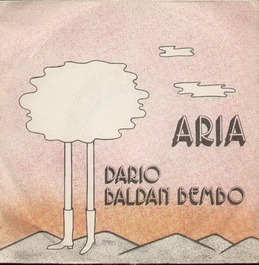
"Aria" is a 1975 song composed by Dario Baldan Bembo (music) and Sergio Bardotti (lyrics). The song marked the solo debut as a singer of Dario Baldan Bembo, a former Equipe 84 member already well known as a session-man and a composer. The song was major hit, ranking #2 on the Italian hit parade.

"Amico è" is a 1983 song composed by Dario Baldan Bembo (music), Nini Giacomelli and Sergio Bardotti (lyrics), and performed by Baldan Bembo and Caterina Caselli.

"Arrivederci" is a 1959 Italian song composed by Umberto Bindi (music) and Giorgio Calabrese (lyrics). "Arrivederci" marked the record debut of Bindi, who recorded two versions of the song, but it was eventually led to success by Don Marino Barreto Jr., whose version topped the Italian hit parade.

"Il nostro concerto" is a 1960 Italian song composed by Umberto Bindi (music) and Giorgio Calabrese (lyrics). The song premiered at the Italian Music Festival in New York, in which was performed by Miranda Martino and placed third. It eventually was Bindi's major hit, whose version topped the Italian hit parade for several months.
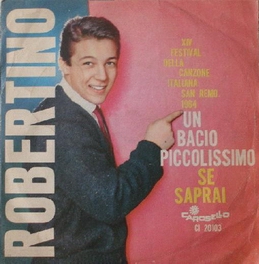
"Un bacio piccolissimo" is a 1964 song composed by Giovanni Ornati and Gino Mescoli. The song premiered at the 14th edition of the Sanremo Music Festival with a double performance of Robertino and Bobby Rydell. Robertino's version was sung with a fake English accent according to the fashion of the time.

"E la luna bussò" is an Italian reggae ballad written by Mario Lavezzi, Oscar Avogadro and Daniele Pace and performed by Loredana Bertè. One of Bertè's major hits, it stayed on the Italian Singles Chart for 29 weeks.
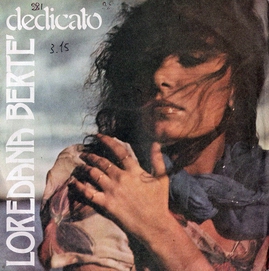
"Dedicato" is an Italian R&B ballad written by Ivano Fossati and performed by Loredana Bertè. It was the first Bertè's single entering the top ten on the Italian hit parade.

"Non sono una signora" is an Italian pop-rock song written by Ivano Fossati and performed by Loredana Bertè. Considered Bertè's signature song, it has influenced her provocative imagine and aggressive style in the following years of career. It has been described as a "career catch" song for Berté.

"Come sinfonia" is a 1961 Italian song composed by Pino Donaggio. The song premiered at the 11th edition of the Sanremo Music Festival, with a double performance by Donaggio and Teddy Reno, and placed at the sixth place. In spite of its placement, it was then referred to by several critics as the song of the year and as an instant classic.
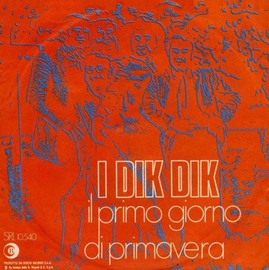
"Il primo giorno di primavera" is a 1968 song composed by Mario Lavezzi, Cristiano Minellono and Mogol and performed by the musical group Dik Dik.

"Fortissimo" is a 1966 song brought to success by Rita Pavone. The music was composed by Bruno Canfora, while the lyrics were written by director and screenwriter Lina Wertmüller, at the time a close collaborator of Pavone, after having directed her in the television miniseries Il giornalino di Gian Burrasca and in the musicarello film Rita the Mosquito. The arrangements of the song are by Luis Bacalov.



















